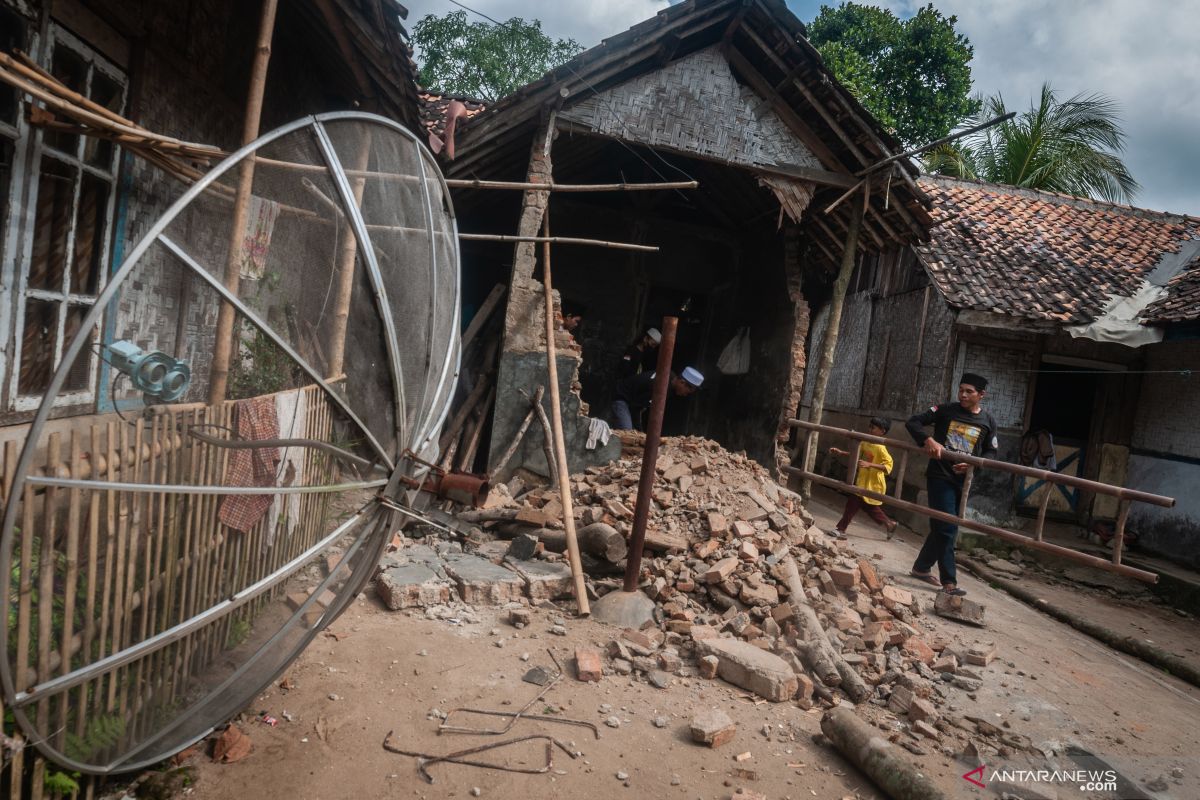Jakarta (ANTARA) - Sunda Strait's megathrust segment is one of Indonesia's seismic gap zones, with no earthquakes for centuries, so it should be watched out for, Meteorology, Climatology, and Geophysics Agency's (BMKG's) earthquake, tsunami mitigation coordinator Daryono stated.
"The earthquake in Ujung Kulon, Banten, yesterday, was actually not a real threat because the megathrust segment of the Sunda Strait is capable of triggering an earthquake, with a targeted magnitude of 8.7, and this can occur at any time. This is the real threat," Daryono stated on Saturday.
The coordinator noted that no technology had yet been able to forecast when an earthquake will occur, especially with the condition of hundreds of years of no reported earthquake. Moreover, Sunda Strait is located between the locations of two major earthquakes: the 2006 Pangandaran earthquake of M7.7 and the 2007 Bengkulu earthquake of M8.5.
Related news: 6.6 magnitude earthquake jolts Banten's Sumur Sub-district
Based on historical records of earthquakes and tsunamis, it was found that tsunamis are frequent in the Sunda Strait region. The Sunda Strait tsunamis that occurred in 1722, 1852, and 1958 were caused by earthquakes.
Moreover, the tsunamis in 416, 1883, 1928, and 2018 were related to the eruption of Mount Krakatoa, whereas the tsunamis of 1851, 1883, and 1889 were triggered by avalanche activity.
Daryono noted that strong earthquakes and tsunamis were natural processes that cannot be stopped. The BMKG cannot forecast when they would occur.
Related news: BMKG cautions of extreme weather at peak of rainy season
"However, amid the uncertainty, we can still undertake concrete mitigation efforts, such as by construction earthquake-resistant buildings and modeling the dangers of earthquake and tsunamis, and then using this model as a mitigation reference," he remarked.
The coordinator called on the local government to conduct regional planning based on the earthquake and tsunami risk, ready evacuation routes, install evacuation signs, build evacuation sites, and practice evacuation and drills on a regular basis, including edifying on self-evacuation.
In addition, the BMKG will continue to improve the performance of tsunami forecasting and early warning system to make it faster and more accurate, he added.
Related news: BMKG records 33 aftershocks following 6.6-magnitude Banten quake
Related news: Magnitude-6.6 earthquake in South Banten caused by subduction activity










